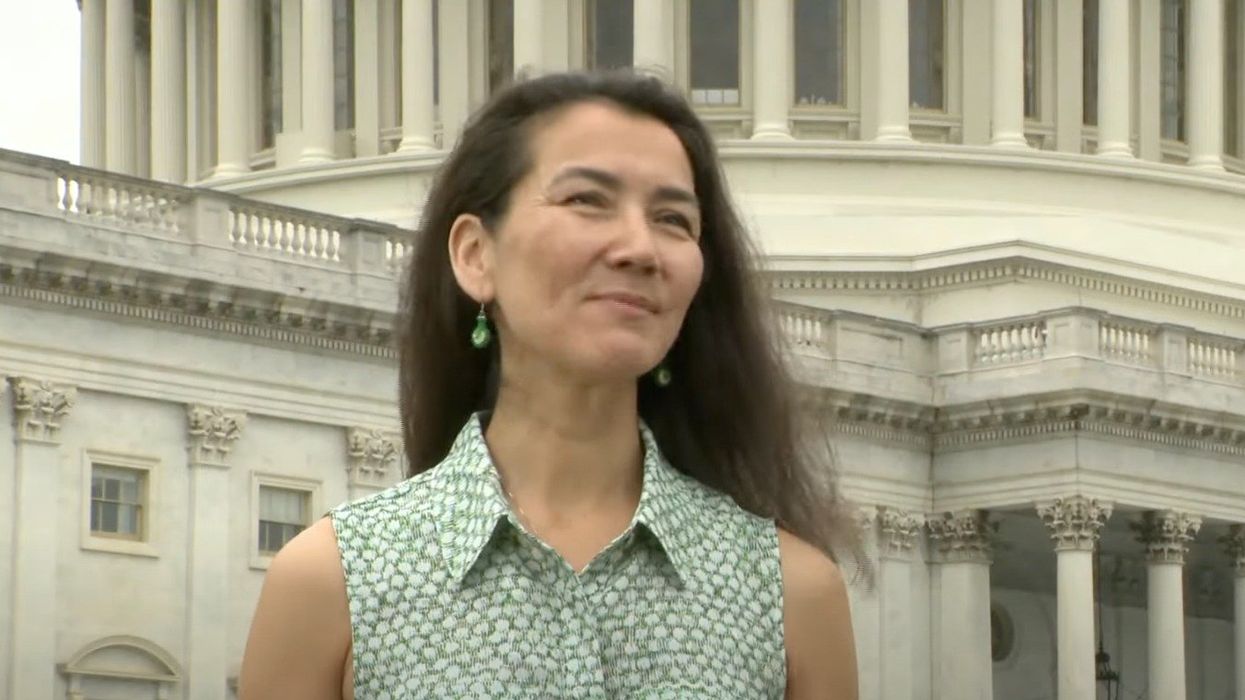GOP Dark Money Outfit Hits Democrats With False Claims Of Medicare Cuts
The dark money group American Action Network announced Friday that it will spend $2 million on ads to try to convince voters that President Joe Biden is going to cut health benefits for older Americans.
The tax-exempt 501(c)(4) political group said it plans to run ads in 14 House districts and in Washington, D.C. A sample spot, aimed at voters in Alaska, targets Democratic Rep. Mary Peltola.
"How did D.C. liberals fund $200 billion for IRS and Green New Deal pet projects? By raiding our Medicare," a narrator says. "Now President Biden's proposing massive Medicare Advantage cuts to seniors that could slash over $500 in benefits per retiree. While Biden breaks his promise to 30 million seniors who chose Medicare Advantage, Congresswoman Mary Peltola is silent. So we must speak."
The group says that it will also run ads targeting Democratic Reps. Yadira Caraveo (CO), Matt Cartwright (PA), Don Davis (NC), Lloyd Doggett (TX), Anna Eshoo (CA), Marie Gluesenkamp Perez (WA), Jared Golden (ME), Marcy Kaptur (OH), Dan Kildee (MI), Greg Landsman (OH), Wiley Nickel (NC), Emilia Sykes (OH), and Susan Wild (PA).
Many of the ad's claims are sourced to right-wing media outlets and to America's Health Insurance Plans and the Better Medicare Alliance, lobbying groups for the health insurance industry.
The ad's claims are false.
The Inflation Reduction Act, enacted in August 2022, before Peltola was elected to Congress, invested $369 billion in clean energy and climate change infrastructure, but did not include the Green New Deal, a climate proposal introduced in Congress in 2019 by Democrats Rep. Alexandria Ocasio-Cortez of New York and Sen. Edward Markey of Massachusetts.
Provisions in the law allocate funding to modernize and improve staffing for the Internal Revenue Services. Because such improvements will allow the agency to crack down on wealthy individuals and businesses that do not pay what they owe in taxes, the Congressional Budget Office estimates the investment will pay for itself and actually bring in a net $185 billion over a decade.
The law also allows Medicare to negotiate directly with pharmaceutical companies for lower prices on medications and caps the out-of-pocket costs for beneficiaries who need prescription drugs and insulin. Though this will save the program money, it is in no way a raid on Medicare and will not harm beneficiaries. Fact checkers have repeatedly debunked GOP claims that the changes in the provision amount to a cut.
Biden has not proposed to cut benefits for Medicare Advantage, Part C of the Medicare program, which allows recipients to opt in to a private insurance plan instead of "Original Medicare" for their coverage. A new rule issued by the Centers for Medicare and Medicaid on Feb. 1 would allow the federal government to reclaim some of the money it overpaid to the private insurance companies. But the agency predicted an overall increase of 1.03 percent in total Medicare Advantage spending for 2024. On February 15, PolitiFact ruled claims that the administration was cutting the program false, based on interviews with multiple experts.
The American Independent Foundation reported in 2021 that the American Action Network had spent millions of dollars on ads opposing letting the government negotiate drug prices with pharmaceutical companies, warning that such negotiations would amount to a "socialist drug takeover plan" and would kill people because lower corporate profits might result in less investment in future research and development.
The organization, chaired by former Minnesota Republican Sen. Norm Coleman, has spent millions of dollars to attack Democrats, support Republicans, and oppose health care reforms.
It does not disclose its donors, but public filings have revealed that it has received millions of dollars in the past from the Pharmaceutical Research and Manufacturers of America, a trade group representing the drug industry, and from health insurer Aetna.
Its latest ads come as Republicans in Congress are seeking to convince voters that they have not proposed significant and unpopular changes to safety net programs such as Medicare, Medicaid, and Social Security and that it is Democrats that really want to slash the programs.
In late February, Florida Sen. Rick Scott abandoned his proposal to make Social Security and Medicare automatically expire every five years and require reauthorization by Congress, despite having claimed in March 2022 that doing so was the best way to "preserve" those programs.
Reprinted with permission from American Independent.











